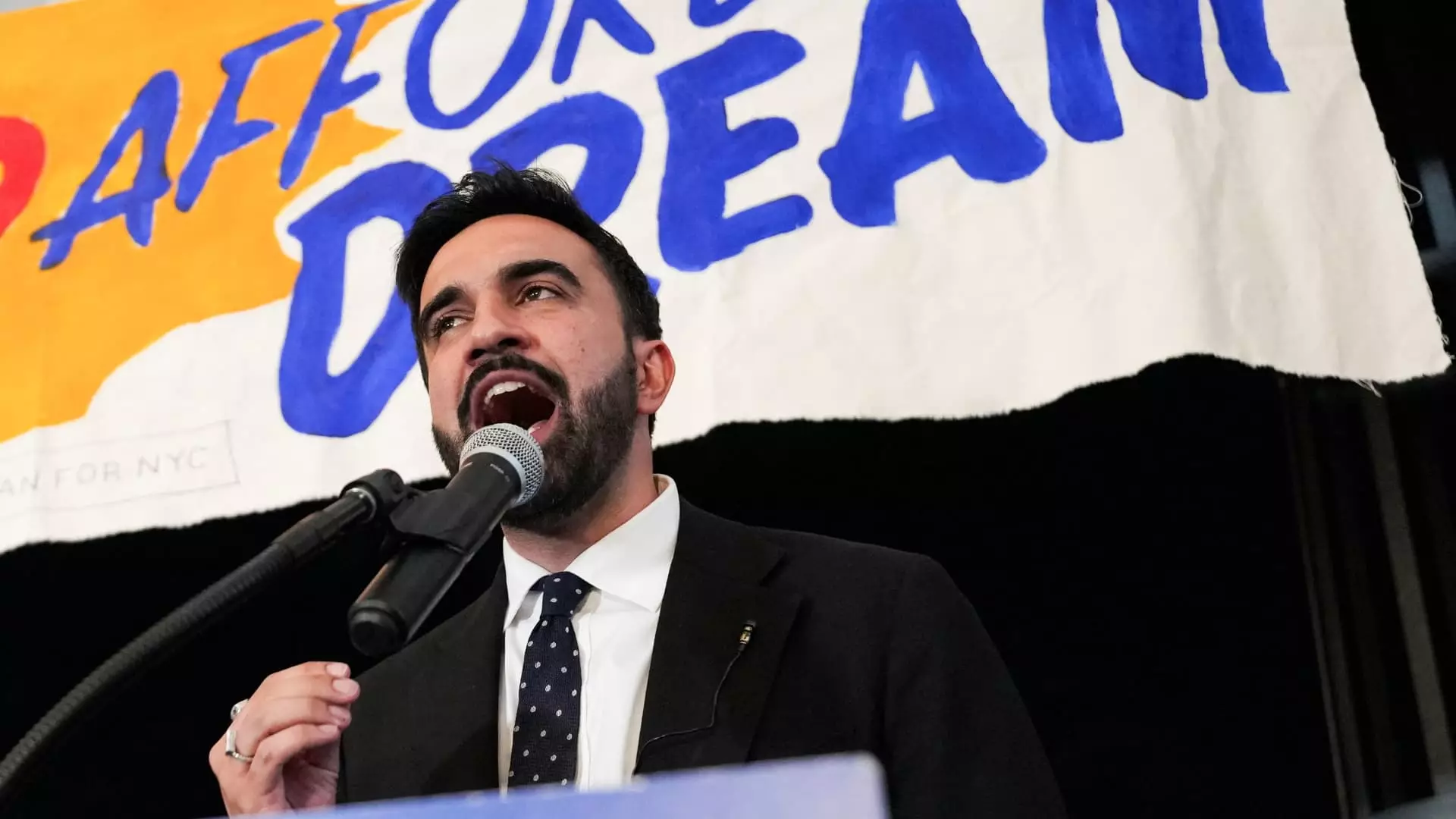The recent surge in labeling Zohran Mamdani, a Democratic socialist and New York City mayoral candidate, as a “communist” by former President Donald Trump is not only misleading but also symptomatic of a deeper misunderstanding—or deliberate distortion—of progressive politics in America. Trump’s assertion that Mamdani’s election will transform New York into “a communistic city” echoes an outdated Cold War rhetoric that oversimplifies and vilifies a platform deeply rooted in democratic socialist principles rather than authoritarian communism. This accusation does little to contribute to constructive political discourse; instead, it fuels fear and division, particularly among business elites and conservative commentators.
Mamdani’s policies, including advocating for a corporate tax hike, taxing the wealthy more, rent freezes, and free public transit, are responses to glaring socioeconomic inequalities and the exorbitant cost of living that plague New York City. These are pragmatic proposals designed to address systemic issues, not revolutionary mandates aiming to dismantle democracy or property rights. Confusing democratic socialism with communism is a politically toxic tactic that undermines the electorate’s capacity to critically evaluate policy proposals based on merit and concrete outcomes.
The Fear Among the Wealthy: A Symptom, Not a Problem
The unease expressed by prominent investors and hedge fund managers over Mamdani’s surprising primary win highlights a glaring mismatch between the realities of an evolving urban electorate and the entrenched interests of financial elites. Investors like Phillip Laffront openly admit that Mamdani’s ascendancy could trigger a migration of wealth out of New York City. This reaction is telling, as it reveals how short-sighted capitalist interests often prioritize profit and property values over the broader wellbeing of communities and urban sustainability.
Rather than bemoan these concerns as irrational alarmism, it is crucial to recognize that such fears are rooted in an economic model that prioritizes wealth preservation over equitable growth. New York has long been a city of vast disparities, where financial prosperity for a few coexists with overwhelming housing insecurity and social stratification. A mayor advocating for policies that promote social justice and more equitable distribution threatens the status quo, which naturally agitates the existing power structures.
The Political Landscape: A Fractured Democratic Tent
The rivalry in New York City’s mayoral race also underscores the fragmentation within the Democratic Party itself. With Andrew Cuomo conceding early yet not confirming if he’ll run as an independent, and the incumbent Mayor Eric Adams seeking re-election outside the Democratic apparatus, the party appears fractured and unsteady. Adams’ decreasing popularity, compounded by his federal indictment on corruption charges—and subsequent DOJ dismissal under dubious circumstances—exemplifies the challenges facing urban leadership.
The DOJ’s controversial move to drop charges against Adams in exchange for immigration enforcement concessions has compromised the integrity of the justice system and raised disturbing questions about political influence and accountability. Meanwhile, Adams’ decision to run as an independent signals a turbulent political environment, where traditional party loyalty is faltering amid scandals and competing agendas.
New York City’s Moment: Confronting Structural Inequality or Clinging to Fear?
This election is more than a mere contest between candidates; it is a referendum on the future direction of New York City. Will the city embrace ambitious reforms that address wealth disparity, housing crises, and public transportation deficits? Or will the political narrative be dominated by fearmongering and misinformation that stifles progressive solutions?
The reductive branding of a democratic socialist candidate as a “communist” diminishes the genuine challenges faced by an increasing number of urban voters regarding affordable living and social equity. It sidesteps the need for honest dialogue on how best to govern a city of millions with complex and intersecting problems.
Ultimately, the fervor surrounding Mamdani’s rise signals a shift away from political complacency toward citizens demanding real change. The alarm from conservative corners should not be mistaken for an indictment of his platform but recognized as the defensive posture of privileged interests threatened by the prospect of a more just and inclusive city governance. The question is whether New Yorkers will allow this reactionary fear to dictate their choices or courageously pursue leadership that reflects their aspirations for a fairer metropolis.


Leave a Reply